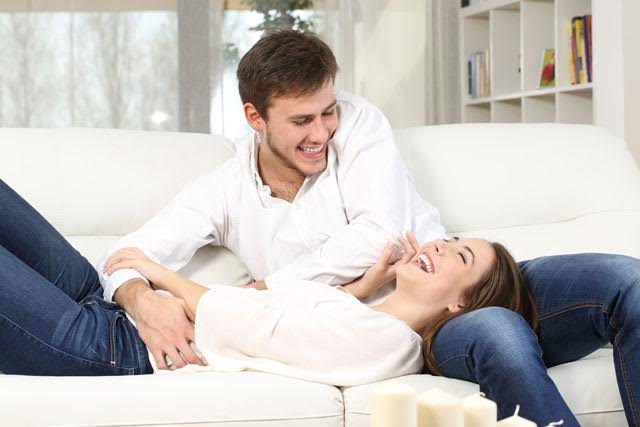Why Am I Ticklish

I have performed physical manipulations on individuals for many years and inevitably run into someone with a ticklish spot. As a result I often get asked the question, “Why am I ticklish?”
People respond in different ways when that one particularly sensitive area is stimulated. Usually the response is to laugh (or make a crazy sound) and cringe protecting the vulnerable area. Squirming to protect the region is a spontaneous reaction in much the same way as rubbing a point on the body that has sustained a sudden impact.
For example, if you’ve ever accidentally bumped your knee, elbow, or head hard enough to be prompted to rub it immediately afterward then, you know it feels better when you rub it. However, if you press or poke on the area right after impact… you find it hurts like the dickens. The area is hypersensitive. Herein lies a connection to ticklishness and the spontaneous response to protect the area.
When the body experiences a physical impact in a localized area the immediate autonomic response is to send QI and and Blood to the area in order to heal the injury temporarily causing hypersensitivity to any additional stimuli. Rubbing or massaging the area stimulates the flow of Qi and Blood to and from the area to help it heal faster reducing sensitivity and eliminating pain. That’s a cool instinctive response to be programmed with, right?
Ticklishness is most often a result of either an obstruction to Qi flow often along a particular meridian and the tickle spot is where Qi is being accumulated and forcing it outward towards the skin… or, there is a disruption (opening) in the movement of Qi along a given meridian and it is “pooling” or “leaking” forth toward the skin’s surface where even the slightest pressure or brushing motion can cause a reaction. We all think it’s cute to see our loved ones writhing and twitching at our mercy while simultaneously laughing and making insane noises but, in essence… it’s a sort of injury and they’re instinctively trying to protect themselves from physical harm.
“Physical harm”, really? Yep.
Under normal circumstances, joy can relieve tension and positively stimulate the flow of Qi and Blood. If the emotion is exaggerated, however, the Qi required to stabilize the functions of the mind will scatter from the Heart. Intense and prolonged laughter like the kind associated with “tickle torture” can impair a person’s focus and concentration. A person who has been giggling/laughing for a long time and subsequently has a hard time stopping and regaining composure is without sufficient Heart Qi to stabilize the functions of the mind. In cases where the Heart Qi becomes so severely scattered (like during episodes of severe trauma or fright) and it can not return to its physical home in the Heart, mental disorders may result. Such is the premise for ADHD, schizophrenia, PTSD, and bipolar disorder. So, if you’re constantly tickling a kid with ADHD, you’re making it worse.
Well, if ticklishness is an injury, can it be cured?
The concept of why ticklishness exists is more complex than the method described to alleviate it. The procedure is quite simple.
First, since it is virtually impossible to tickle yourself, it is not possible to perform the technique required to alleviate ticklishness yourself. You will require the assistance of someone you trust to perform the technique for you.
Once you’ve acquired your trustworthy assistant, the next thing you need is a quiet, comfortable place to recline or lie down.
Next, discuss with your assistant the following steps before proceeding. From a restful position, Identify the ticklish area you wish to have resolved for your assistant by pointing it out. Your assistant should then apply firm (not heavy) pressure to the area for 60 seconds with the pads of the fingers or the palm of the right hand. The size and location of the ticklish spot will determine the appropriate hand technique. The applied pressure should not cause any pain or ticklish sensation. Discontinue the procedure if it produces any pain. It is not necessary to apply any body weight.
It’s absolutely fine to repeat the procedure if your assistant didn’t get it quite right the first time but, if the procedure has been performed correctly your assistant has made a correction to the flow of Qi in your body. The area “leaking” or “pooling” Qi will have essentially been sealed and you will no longer be ticklish in that spot! Ta-da!






